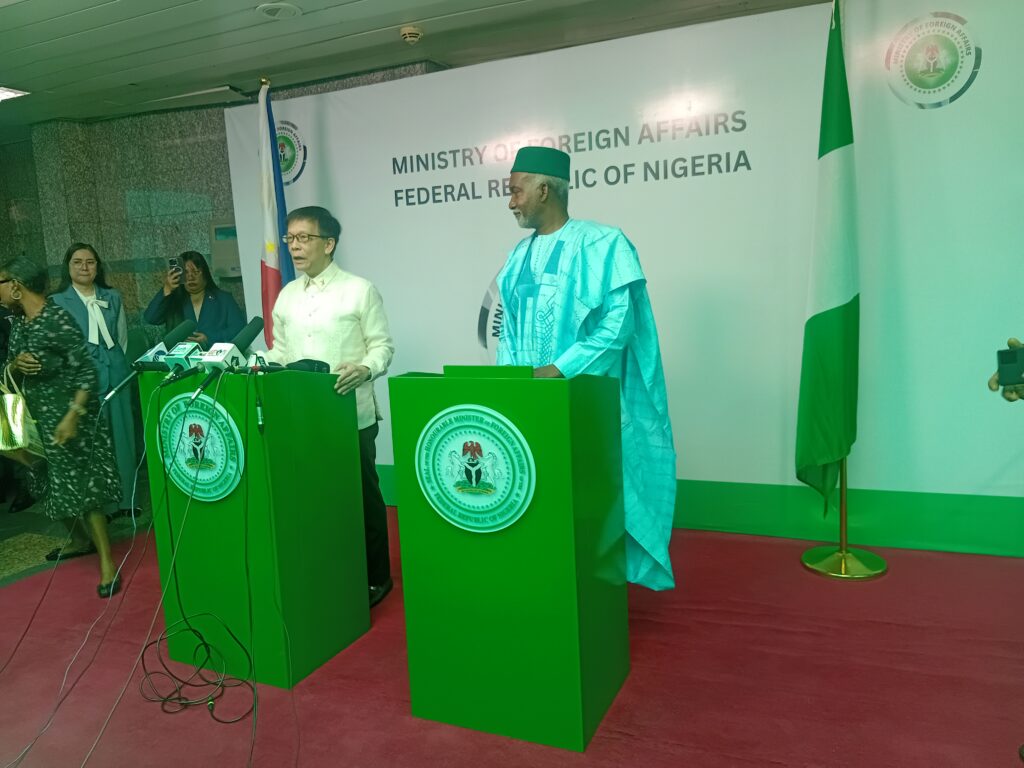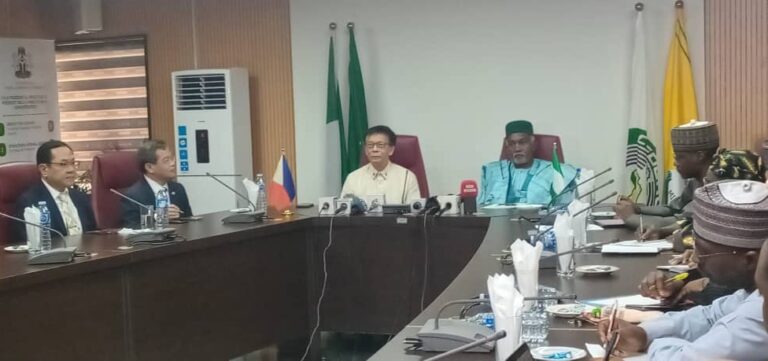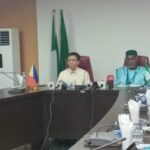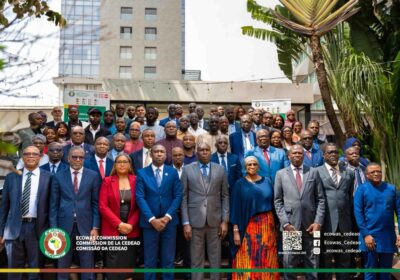Nigeria and the Philippines Forge Stronger Ties, Strategize on Labor and Migration Bonds.
By Raymond Enoch
In a landmark move to deepen bilateral cooperation, Nigeria and the Republic of the Philippines have reaffirmed their commitment to enhancing labor and migration relations during a high-level diplomatic meeting held at the Ministry of Foreign Affairs Conference Hall in Abuja.

The meeting brought together the Honourable Minister of Foreign Affairs, Ambassador Yusuf Maitama Tuggar, and the Philippine Secretary of Migrant Workers, Hon. Hans Leo J. Cacdac, who led a delegation on a working visit to Nigeria. Both sides engaged in wide-ranging discussions on the rights and welfare of migrant workers, anti-human trafficking strategies, and frameworks to institutionalize better labor governance and bilateral collaboration.

Ambassador Tuggar recalled the longstanding history of cooperation between the two nations, especially in education and professional services. He noted that many Nigerians from his generation were taught by Filipino teachers, particularly in science and technology fields. He praised the enduring legacy of Filipino professionals in Nigeria’s development, describing them as cultural and intellectual bridges that continue to enrich bilateral ties.
In line with President Bola Ahmed Tinubu’s 4D foreign policy framework—Democracy, Demography, Development, and Diaspora—the Nigerian government expressed a strong desire to draw from the Philippines’ globally respected model for protecting migrant workers. Tuggar emphasized that Nigeria is poised to adapt such models to ensure its growing diaspora population is better supported and its labor exchanges are managed more strategically.
Secretary Cacdac, representing the administration of President Ferdinand Marcos Jr., conveyed appreciation for Nigeria’s safe and welcoming environment for Filipino workers. He emphasized that one of the core mandates from his President is to strengthen labor ties with host countries. He formally proposed the establishment of a dedicated Migrant Workers Office within the Philippine Embassy in Abuja—a step aimed at enhancing services for Overseas Filipino Workers (OFWs) and expanding diplomatic reach.
The dialogue further spotlighted Nigeria’s Technical Aid Corps (TAC), which deploys skilled Nigerian professionals to African, Caribbean, and Pacific countries. Minister Tuggar proposed expanding the initiative into a revenue-generating and skills-exporting platform through partnerships with countries like the Philippines, aligning development goals with economic opportunity.
In another key development, Secretary Cacdac announced that nine bilateral agreements between Nigeria and the Philippines are close to completion, with a tenth focused exclusively on labor cooperation now under active consideration. Both parties signaled readiness for follow-up engagements with Nigeria’s Ministry of Labour to flesh out the terms of labor exchanges, capacity development, anti-trafficking mechanisms, and data-sharing systems.
Secretary Cacdac also emphasized the importance of learning from each other’s experiences to improve labor systems. He proposed deeper technical collaboration in shaping policies around fair recruitment, migrant reintegration, and skills certification. He commended Nigeria’s openness and pledged the Philippines’ continued commitment to building a mutually beneficial relationship rooted in trust, people-centered diplomacy, and respect for national sovereignty.
This meeting marks a significant step toward transforming the labor and migration relationship between both countries into a strategic partnership that will not only safeguard the welfare of migrant workers but also contribute to the socio-economic growth of both nations. The planned establishment of the Migrant Workers Office in Abuja will institutionalize Philippine presence in labor matters and reflect its commitment to structured engagement.
Nigeria and the Philippines are expected to align their policy instruments for managing labor migration while creating more avenues for skill exchange and investment in human capital. Their cooperation is also likely to serve as a regional model for labor diplomacy in the Global South, showing how development-oriented migration partnerships can be built on mutual respect and shared prosperity.
As both countries turn the page to a more collaborative future, the Abuja meeting today, has laid a solid foundation for a bilateral relationship anchored not only in diplomacy but also in the dignity and mobility of their people.









